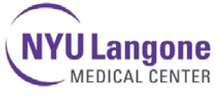What is a pediatric ophthalmologist?
A pediatric ophthalmologist is a medical doctor (MD) who has completed 4 years of medical school followed by 1 year of medical training, 3 years of additional residency training in ophthalmology and at least 1 year of fellowship training in pediatric ophthalmology. A pediatric ophthalmologist is uniquly trained to evaluate and treat both medical and surgical eye conditions in children as well as adult strabismus. Pediatric ophthalmologists know how to examine and treat children in a way that makes them relaxed and cooperative. Pediatric ophthalmologists can diagnose, treat, and manage all children’s eye problems. Because they are MD’s, they are trained to see your child’s eye conditions in the context of any other health issues.
How long are pediatric eye exams?
That all depends on your child’s eye health, the tests that need to be performed, and his/her needs. In order for our doctors to conduct a complete eye exam with dilation and thoroughly explain any findings from the visit, please allow 90 minutes for the first appointment (which includes 30 minutes of waiting for the dilation drops to be absorbed by the eyes). If you or your child’s eyes are dilated, they will be sensitive to light, so we suggest that you bring sunglasses to wear after your visit, or we can provide disposable sunglasses.
Will my child need eye drops to have an eye examination?
Usually, yes. Dilating the pupils with an eye drop allows the doctor to get a good look at the inside of the eye. In addition, the eye drop relaxes the “focusing muscles” that attach onto the lens of the eye. This lets them objectively measure refractive error (i.e., if glasses might be needed)
Will the drops harm my child’s eyes?
Drops are not harmful to your child’s eyes, however, if you or your child’s eyes are dilated, they will be sensitive to light. The eye drops will make your or your child’s near vision blurry. Depending on the drops that are given, the dilation can last anywhere from 4 to 24 hours.
Does my child need an eye examination?
It’s never too early to have your child’s vision examined by a pediatric ophthalmologist (medical eye doctor). The American Association for Pediatric Ophthalmology and Strabismus recommends that children receive their first eye exam at the age of 3, but if certain risk factors are present, or if there is a family history of childhood eye problems, an exam should be performed sometime before age 1. At Rockland iCare, we are equipped to examine children of any age and are experienced with providing infant eye examinations. Early detection is key to preventing long-term problems, so if you suspect your child is at risk, it is important to make an appointment with an experienced practitioner who can handle the unique needs of children.
Can my child be examined if he/she can’t read an eye chart?
Many parents believe that eye examinations are impossible before a child is able to read an eye chart. At Rockland iCare, we have extensive training in performing thorough eye examinations on infants. Using tools such as simple toys and advanced equipment, we are able to evaluate your infant’s vision, focusing power, and eye structure. Because early detection offers better treatment results for common conditions such as amblyopia (“lazy eye”), strabismus (misaligned eyes), cataracts, and retinal abnormalities, it is important to visit an ophthalmologist who has experience with infant eye exams if you suspect a problem with your child’s or infant’s vision.
My child has special needs, can he/she be examined?
Special needs children often have a higher risk of developing vision problems, and their vision problems can, in turn, exacerbate their disability. It can be difficult for parents to identify the symptoms and signs of vision problems in their children, especially when their children have difficulty with communication. Our staff is able to provide a safe and comfortable eye exam to any child–including those with physical, intellectual, and emotional disabilities.
What is refraction?
Refraction is an exam that is done to determine whether a child is nearsighted, farsighted, or has astigmatism, and whether glasses are necessary or need to be changed. This is an essential part of any eye examination and it is very important for children of all ages from infancy and adults. This exam identifies problems such as amblyopia (also known as lazy eye) and strabismus (also known as crossed eye) as well as helping to determine why your child might have failed a vision screening at school or at the pediatrician’s office. If your child’s vision cannot be corrected with glasses, he or she might have some other eye disease, and a refraction is the only way we can effectively determine this. Most medical insurance plans will not pay for refraction, although it is a fundamental part of a comprehensive eye examination. Please make sure you review your insurance policy carefully as some companies may provide reimbursement for this service. Rockland iCare requires you to pay for this service on the day of your child’s exam when this service is provided





